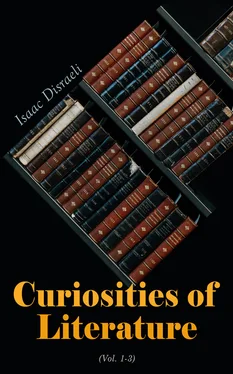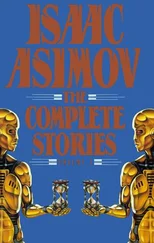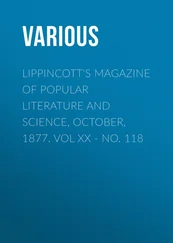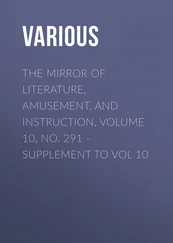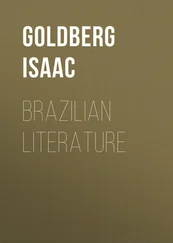Isaac Disraeli - Curiosities of Literature (Vol. 1-3)
Здесь есть возможность читать онлайн «Isaac Disraeli - Curiosities of Literature (Vol. 1-3)» — ознакомительный отрывок электронной книги совершенно бесплатно, а после прочтения отрывка купить полную версию. В некоторых случаях можно слушать аудио, скачать через торрент в формате fb2 и присутствует краткое содержание. Жанр: unrecognised, на английском языке. Описание произведения, (предисловие) а так же отзывы посетителей доступны на портале библиотеки ЛибКат.
- Название:Curiosities of Literature (Vol. 1-3)
- Автор:
- Жанр:
- Год:неизвестен
- ISBN:нет данных
- Рейтинг книги:3 / 5. Голосов: 1
-
Избранное:Добавить в избранное
- Отзывы:
-
Ваша оценка:
- 60
- 1
- 2
- 3
- 4
- 5
Curiosities of Literature (Vol. 1-3): краткое содержание, описание и аннотация
Предлагаем к чтению аннотацию, описание, краткое содержание или предисловие (зависит от того, что написал сам автор книги «Curiosities of Literature (Vol. 1-3)»). Если вы не нашли необходимую информацию о книге — напишите в комментариях, мы постараемся отыскать её.
Curiosities of Literature (Vol. 1-3) — читать онлайн ознакомительный отрывок
Ниже представлен текст книги, разбитый по страницам. Система сохранения места последней прочитанной страницы, позволяет с удобством читать онлайн бесплатно книгу «Curiosities of Literature (Vol. 1-3)», без необходимости каждый раз заново искать на чём Вы остановились. Поставьте закладку, и сможете в любой момент перейти на страницу, на которой закончили чтение.
Интервал:
Закладка:
The lady of Evelyn designed herself the frontispiece to his translation of Lucretius. She felt the same passion in her own breast which animated her husband's, who has written, with such various ingenuity. Of Baron Haller it is recorded that he inspired his wife and family with a taste for his different pursuits. They were usually employed in assisting his literary occupations; they transcribed manuscripts, consulted authors, gathered plants, and designed and coloured under his eye. What a delightful family picture has the younger Pliny given posterity in his letters! Of Calphurnia, his wife, he says, "Her affection to me has given her a turn to books; and my compositions, which she takes a pleasure in reading, and even getting by heart, are continually in her hands. How full of tender solicitude is she when I am entering upon any cause! How kindly does she rejoice with me when it is over! While I am pleading, she places persons to inform her from time to time how I am heard, what applauses I receive, and what success attends the cause. When at any time I recite my works, she conceals herself behind some curtain, and with secret rapture enjoys my praises. She sings my verses to her lyre, with no other master but love, the best instructor, for her guide. Her passion will increase with our days, for it is not my youth nor my person, which time gradually impairs, but my reputation and my glory, of which, she is enamoured."
On the subject of a literary wife, I must introduce to the acquaintance of the reader Margaret Duchess of Newcastle. She is known, at least by her name, as a voluminous writer; for she extended her literary productions to the number of twelve folio volumes.
Her labours have been ridiculed by some wits; but had her studies been regulated, she would have displayed no ordinary genius. The Connoisseur has quoted her poems, and her verses have been imitated by Milton.
The duke, her husband, was also an author; his book on horsemanship still preserves his name. He has likewise written comedies, and his contemporaries have not been, penurious in their eulogiums. It is true he was a duke. Shadwell says of him, "That he was the greatest master of wit, the most exact observer of mankind, and the most accurate judge of humour that ever he knew." The life of the duke is written "by the hand of his incomparable duchess." It was published in his lifetime. This curious piece of biography is a folio of 197 pages, and is entitled "The Life of the Thrice Noble, High, and Puissant Prince, William Cavendish." His titles then follow:—"Written by the Thrice Noble, Illustrious, and Excellent Princess, Margaret Duchess of Newcastle, his wife. London, 1667." This Life is dedicated to Charles the Second; and there is also prefixed a copious epistle to her husband the duke.
In this epistle the character of our Literary Wife is described with all its peculiarities.
"Certainly, my lord, you have had as many enemies and as many friends as ever any one particular person had; nor do I so much wonder at it, since I, a woman, cannot be exempt from the malice and aspersions of spiteful tongues, which they cast upon my poor writings, some denying me to be the true authoress of them; for your grace remembers well, that those books I put out first to the judgment of this censorious age were accounted not to be written by a woman, but that somebody else had writ and published them in my name; by which your lordship was moved to prefix an epistle before one of them in my vindication, wherein you assure the world, upon your honour, that what was written and printed in my name was my own; and I have also made known that your lordship was my only tutor, in declaring to me what you had found and observed by your own experience; for I being young when your lordship married me, could not have much knowledge of the world; but it pleased God to command his servant Nature to endue me with a poetical and philosophical genius, even from my birth; for I did write some books in that kind before I was twelve years of age, which for want of good method and order I would never divulge. But though the world would not believe that those conceptions and fancies which I writ were my own, but transcended my capacity, yet they found fault, that they were defective for want of learning, and on the other side, they said I had pluckt feathers out of the universities; which was a very preposterous judgment. Truly, my lord, I confess that for want of scholarship, I could not express myself so well as otherwise I might have done in those philosophical writings I published first; but after I was returned with your lordship into my native country, and led a retired country life, I applied myself to the reading of philosophical authors, on purpose to learn those names and words of art that are used in schools; which at first were so hard to me, that I could not understand them, but was fain to guess at the sense of them by the whole context, and so writ them down, as I found them in those authors; at which my readers did wonder, and thought it impossible that a woman could have so much learning and understanding in terms of art and scholastical expressions; so that I and my books are like the old apologue mentioned in Æsop, of a father and his son who rid on an ass." Here follows a long narrative of this fable, which she applies to herself in these words—"The old man seeing he could not please mankind in any manner, and having received so many blemishes and aspersions for the sake of his ass, was at last resolved to drown him when he came to the next bridge. But I am not so passionate to burn my writings for the various humours of mankind, and for their finding fault; since there is nothing in this world, be it the noblest and most commendable action whatsoever, that shall escape blameless. As for my being the true and only authoress of them, your lordship knows best; and my attending servants are witness that I have had none but my own thoughts, fancies, and speculations, to assist me; and as soon as I set them down I send them to those that are to transcribe them, and fit them for the press; whereof, since there have been several, and amongst them such as only could write a good hand, but neither understood orthography, nor had any learning, (I being then in banishment, with your lordship, and not able to maintain learned secretaries,) which hath been a great disadvantage to my poor works, and the cause that they have been printed so false and so full of errors; for besides that I want also skill in scholarship and true writing, I did many times not peruse the copies that were transcribed, lest they should disturb my following conceptions; by which neglect, as I said, many errors are slipt into my works, which, yet I hope, learned and impartial men will soon rectify, and look more upon the sense than carp at words. I have been a student even from childhood; and since I have been your lordship's wife I have lived for the most part a strict and retired life, as is best known to your lordship; and therefore my censurers cannot know much of me, since they have little or no acquaintance with me. 'Tis true I have been a traveller both before and after I was married to your lordship, and some times shown myself at your lordship's command in public places or assemblies, but yet I converse with few. Indeed, my lord, I matter not the censures of this age, but am rather proud of them; for it shows that my actions are more than ordinary, and according to the old proverb, it is better to be envied than pitied; for I know well that it is merely out of spite and malice, whereof this present age is so full that none can escape them, and they'll make no doubt to stain even your lordship's loyal, noble, and heroic actions, as well as they do mine; though yours have been of war and fighting, mine of contemplating and writing: yours were performed publicly in the field, mine privately in my closet; yours had many thousand eye-witnesses; mine none but my waiting-maids. But the great God, that hitherto bless'd both your grace and me, will, I question not, preserve both our fames to after-ages.
Читать дальшеИнтервал:
Закладка:
Похожие книги на «Curiosities of Literature (Vol. 1-3)»
Представляем Вашему вниманию похожие книги на «Curiosities of Literature (Vol. 1-3)» списком для выбора. Мы отобрали схожую по названию и смыслу литературу в надежде предоставить читателям больше вариантов отыскать новые, интересные, ещё непрочитанные произведения.
Обсуждение, отзывы о книге «Curiosities of Literature (Vol. 1-3)» и просто собственные мнения читателей. Оставьте ваши комментарии, напишите, что Вы думаете о произведении, его смысле или главных героях. Укажите что конкретно понравилось, а что нет, и почему Вы так считаете.
